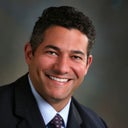What Type of Antibiotics Are Prescribed After a Tummy Tuck, Liposuction As Well As a Fat Graft?
I am having a tummy tuck, lipo, and fat graft next month. I am wondering what type of antibiotics will be prescribed.
I am having a tummy tuck, lipo, and fat graft next month. I am wondering what type of antibiotics will be prescribed.




What’s trending? Who’s turning heads? Which TikTok myths need busting? We’ve got you. No fluff, no gatekeeping—just real talk. Get our free, unfiltered newsletter.